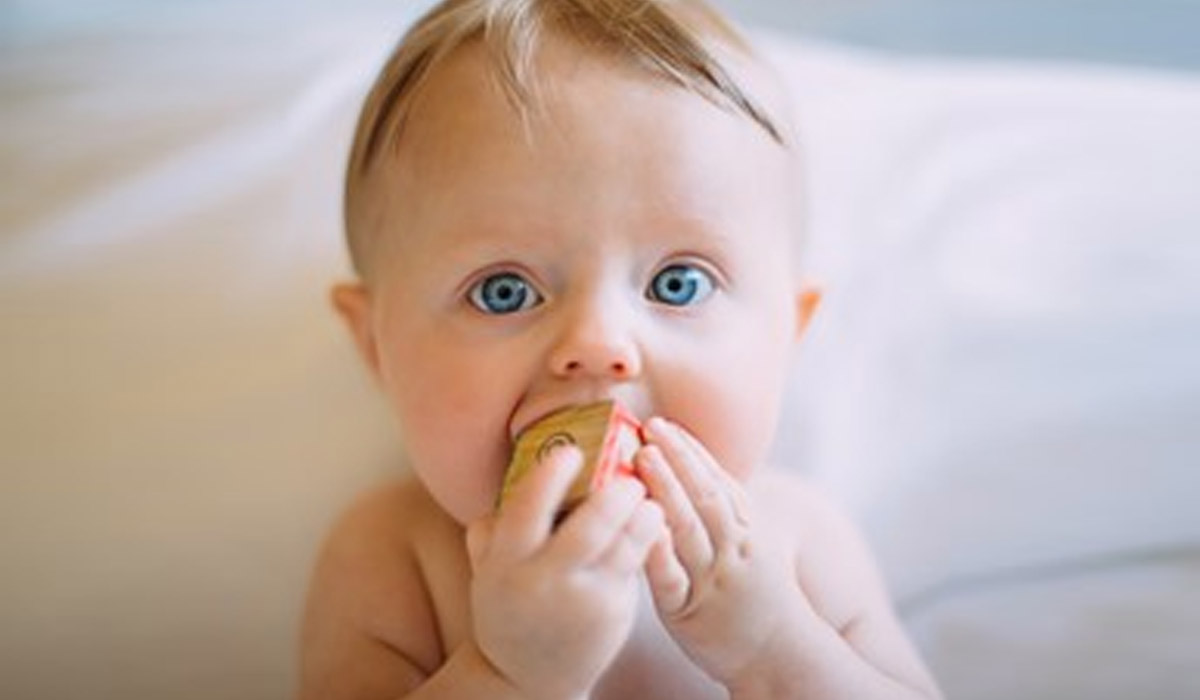You will likely see teething symptoms when your baby is 4 to 7 months old. Teething may cause discomfort for your child as they begin to grow their first set of teeth. Baby teeth can appear anywhere from 3 to 12 to 14 months old.
The teeth breaking through the gums can lead to soreness and swelling. As a parent, it’s essential that you recognize the symptoms of teething so you can understand the process and know whether your child needs additional attention from a dentist in NW Calgary.
When to See a Dentist
You should see a dentist when your child’s first tooth emerges. Dental checkups are essential because dentists can ensure that your baby’s teeth are developing correctly. Baby teeth are crucial to your child’s development because they help them chew and speak. They also hold space in the jaws for when the adult teeth come out.
If your baby’s first teeth have emerged, contact Valley Ridge Dental Centre today. Our pediatric dentist in NW Calgary is happy to meet your little one and ensure their developing teeth are healthy.
Signs of Teething
You can expect your baby’s front teeth to appear from 4 to 7 months old. Teething symptoms usually arise a few days before the tooth becomes visible. Here are 9 critical signs that let you know your baby is teething.
Appetite Loss Due to the soreness they may experience during the teething process, they might be reluctant to eat. You can combat this symptom by offering them cold foods. Cold foods provide relief.
1. Biting
Teething babies usually bite on their fingers of toys to relieve the pressure they may experience on their gums. It would help if you encouraged chewing but ensured that whatever they are chewing is safe for them.
2. Sucking
Your baby may also do this to relieve pressure on their gums. Like with chewing, ensure that whatever they are sucking on is safe for them and there isn’t a risk of swallowing.
3. Drooling
When babies begin the teething process, they may start to drool excessively. Because of this excessive drooling, they may get diarrhea, which can turn into diaper rash. Wipe the drool when you see it pooling, but use a gentle touch so you don’t irritate their skin.
4. Mouth Rash
Mouth rash is caused by excessive drooling. This type of rash can form around your baby’s mouth, on the chin, or the chest. If you see them drooling too much, gently wipe the drool away.
5. Irritability
Irritability is ultra-common among infants who are teething. Again, this is due to the soreness they may experience while their teeth grow. Be patient with your little one if they are exhibiting signs of irritability.
6. Sleep Problems
Because of the discomfort teething can cause, they may struggle to sleep properly. Similar to how adults work to fall asleep when they are experiencing pain or discomfort, babies find it difficult to sleep through the night or take naps while teething.
7. Pulling of the Ears
This symptom is odd, but babies also do this to relieve pressure on their gums. They may also rub their cheeks for the same purpose.
8. Fever
Teething infants can have a heightened body temperature (teething fever). If their fever is over 100.4 degrees Fahrenheit, it is likely not because of teething and could be a sign of a more significant problem. Contact your baby’s healthcare provider if that is the case.
Many parents don’t know their baby is teething because the symptoms are similar to cold ones. You must pay close attention to these specific symptoms to tell the difference between the two.
Babies undergo the teething process at different times, so don’t be surprised if your child doesn’t begin teething at the scheduled time.
In What Order Will Their Teeth Appear?
Usually, the first teeth that you will see emerge are the two in the bottom center of their mouth. After those, you will probably see the two above those. Then, the teeth appear outwards from there, beginning with the lateral incisors, followed by the first molars, then the canines, and finishing with the second molars.
Teething Remedies
Since the process can be uncomfortable for your child, you’ll want to try some of these home remedies to help ease the soreness they may experience.
- Chewing. Chewing is the most common way to help your baby deal with soreness in their gums. Babies already love to chew, and chewing creates counter-pressure that provides relief from the pain caused by their new teeth emerging. You can purchase things like rubber teething rings or other soft toys.
- Cold drinks and food. Hard water can help with their soreness as well. Another thing you can do is place your teething toys in the refrigerator so that when they chew on them, they get extra relief. Refrigerated foods like yogurt or applesauce are both appetizing and effective at lessening your baby’s aching.
- Don’t use numbing agents. Topical numbing agents and rubbing alcohol should not be used on your baby. The FDA says that topical numbing agents can put babies at risk of reduced oxygen levels.
- Medicine. If these home remedies don’t work for you, you can try giving your child medicine. Children’s Tylenol (acetaminophen) or ibuprofen can help lessen their symptoms.
FAQ
Should I worry if my baby’s gums are bleeding?
Bleeding gums are expected during the teething process. These can appear as small blue lumps under the gums. You can ease this by applying a cool, damp cloth.
Is it normal for my baby to develop a fever while teething?
A moderate fever is normal and could be due to swelling. However, if the fever is above 101 degrees Fahrenheit and persists after several days, you should contact your healthcare provider.

